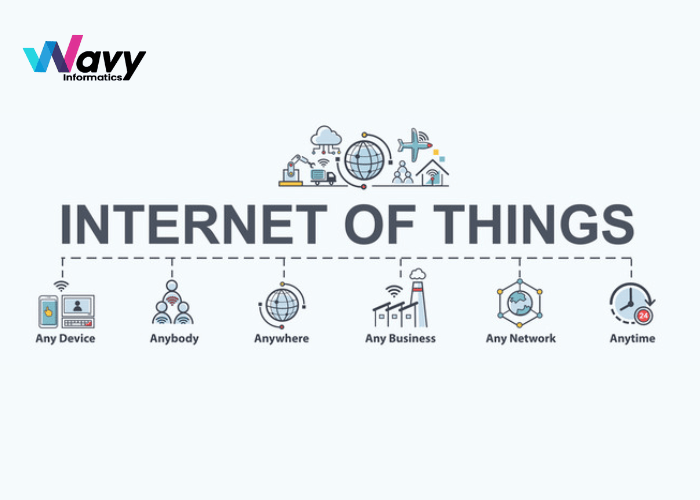
In today’s digital world, a web development company in India does more than build websites. The Internet of Things (IoT) is changing how businesses operate and how users interact with web and mobile applications. IoT connects the digital and physical worlds, making applications smarter, faster, and more responsive. From smart homes and connected cars to health trackers and online shopping platforms, IoT is powering tools we rely on every day. For businesses, this technology opens new opportunities to engage users, improve efficiency, and grow sustainably.
IoT connects devices — such as phones, sensors, machines, and household gadgets — to the internet. These devices continuously collect and share data, which web applications use to deliver real-time insights.
For example:
A web development company in India builds the systems that process this data, ensuring it flows securely and efficiently to web and mobile platforms. The result is a seamless experience for users and actionable insights for businesses.
At its core, IoT in web applications works through a network of connected devices. Each device collects data and sends it to a cloud-based platform via the internet. The web application processes this data and presents it in a format that users can easily understand.
This integration allows businesses to:
For instance, a mobile app development service can create an app that lets users control home lighting and temperature while receiving real-time updates about energy usage.
The number of IoT-connected devices is increasing rapidly. By 2030, experts predict over 40 billion devices will be online globally, generating huge amounts of data every second. Businesses that use this data through web and mobile applications gain a strong advantage in decision-making and customer service.
Industries adopting IoT solutions include:
This growth highlights the importance of working with a trusted app development company in Chandigarh to design smart IoT-driven solutions for businesses.
IoT empowers web and mobile apps to be intelligent and responsive. Some essential features include:
These features make web applications more interactive, efficient, and useful for both businesses and users.
IoT is transforming mobile apps just as much as web applications. Mobile app development services are enabling businesses to create apps that respond to real-time data and connect users to their environment.
Examples include:
Developers ensure these apps are lightweight yet capable of handling large volumes of data while keeping security strong.
IoT-based web and mobile development requires careful planning. Developers focus on:
Balancing these elements ensures IoT applications are reliable, user-friendly, and safe.
IoT is helping both small and large businesses reach new goals. A trusted app development company in Chandigarh is building solutions for schools, hotels, farms, and startups, automating daily operations and improving efficiency.
Examples include:
These innovations are helping cities become smarter and businesses more productive.
Despite its advantages, IoT development comes with challenges that developers must solve:
Skilled developers create solutions that overcome these obstacles, ensuring IoT web and mobile apps remain smooth, secure, and effective.
IoT connects devices like sensors, machines, and phones to the internet, enabling smarter and faster web applications.
It adds real-time data updates, automation, and better user control, making apps and websites more interactive and useful.
Mobile apps can connect with devices, vehicles, and home systems, giving users control and insights anywhere.
Healthcare, education, retail, agriculture, logistics, and more use IoT to save time and improve service.
By partnering with a web development company in India that specializes in IoT systems.
A trusted app development company in Chandigarh, like Wavy Informatics, can design and develop IoT solutions tailored to your business.
IoT is shaping the next generation of web and mobile development. Future applications will anticipate user needs, respond instantly, and create connected digital experiences. Businesses that adopt IoT early can improve services, make smarter decisions, and engage customers more effectively.
IoT is no longer a concept — it’s a reality. A web development company in India can help you build smart, secure, and future-ready web and mobile applications. Wavy Informatics specializes in turning ideas into connected digital experiences that users trust and love.